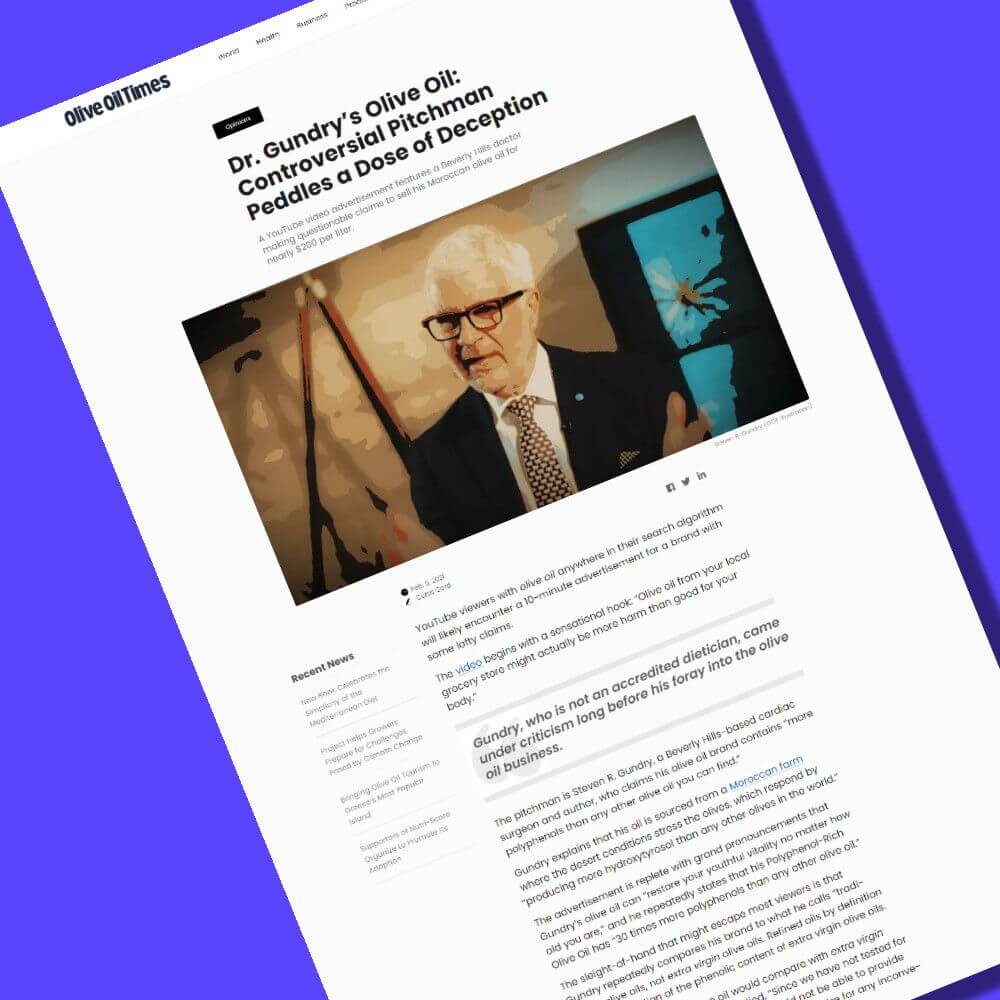In December 2017, we started getting a lot of inquiries through the OOT editorial support channel about a product called Dr. Gundry's Polyphenol-Rich Olive Oil."
The questions stemmed from a widely-circulating YouTube advertisement that raised some eyebrows among olive oil industry insiders and others.
I was bothered by a few statements in the video and ordered a bottle from the recent harvest.
I sent it to an independent lab to see if there was any merit to Gundry's claim that his product contained "30 times the polyphenols of any olive oil you can find."
The tests revealed the Gundry's oil did contain a fairly high level of phenols, so I dropped it and moved on.
The inquiries, however, kept coming in. When I saw another ad last month that went even further with outlandish claims, like "Olive oil from your local grocery store might actually be more harm than good for your body," and that Gundry's oil can "restore your youthful vitality no matter how old you are," I delved.
I ordered a bottle again and sent it off for another round of chemical tests and, this time, sensory analyses.
Again the lab tests revealed an elevated level of hydroxytyrosol but almost no oleocanthal – a chemical profile that raised red flags.
The sensory expert, meanwhile, who had tasted a fair share of horrible oils, called the Gundry sample "one of the worst oils I have ever assessed." It was determined to be lampante – or, in other words, not fit for human consumption.
The striking imbalance of the chemical makeup and the exceedingly bad sensory characteristics strongly suggested a low-quality, likely refined oil laced with a hydroxytyrosol additive.
Lending credence to the suspicion was the absence of "extra virgin olive oil" on the front label of the sample, yet it was listed as an ingredient on the back – a common practice on salad dressings and potato chips packages when there's no way to verify its presence in the product.
We went through Gundry's customer support to see how strenuously they would defend the claims. Not very.
People I reached out to cautioned me to be wary of getting sued for libel, which only made me realize the advantage unethical traders have in our litigious world. Gundry's the one who needs to take more care in the words he chooses.
It all prompted an article that published a few weeks ago and has garnered some 70,000 views, making it one of the most-read in Olive Oil Times.
A few days after the article posted, another sensory panel leader said a similar result was obtained in a test last year that also found Gundry's sample lampante, exhibiting defects of pronounced fustiness and muddy sediment.
I hope the article helps brings to light that olive oil quality isn't something you can fake. It takes hard work and high standards, not shortcuts and empty promises.



